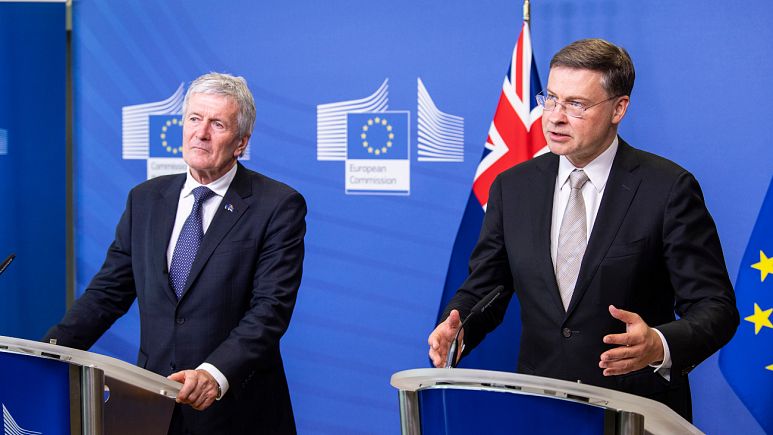The European Union and New Zealand have inked a landmark free trade agreement that promises to deepen economic ties between the two regions and promote sustainable development. The deal, signed on July 9, is expected to boost bilateral trade by 30% over the next ten years, as per the European Commission.

European Commission president Ursula von der Leyen lauded the agreement as "ambitious" and "very balanced" after four years of challenging negotiations. In a statement from Brussels, she emphasized the importance of New Zealand as a key partner in the Indo-Pacific region, highlighting that this trade pact would further strengthen their relationship.
New Zealand Prime Minister Chris Hipkins also expressed his satisfaction with the agreement, noting the "enormous benefits" it offers to both partners. New Zealand heavily relies on exports, with the European Union serving as its third-largest trading partner. Key exports to Europe include wine, fruit, and meat.
In 2022, the total bilateral trade in goods between the EU and New Zealand amounted to just over €9bn. The European Commission projects that EU exports to New Zealand could increase by up to €4.5bn annually, while EU investment in the country could rise by as much as 80%.
Today we also sign an agreement on New Zealand's participation in @HorizonEU
— Ursula von der Leyen (@vonderleyen) July 9, 2023
We are looking forward to pooling our best minds and talents.
So they can work together on the next generation of clean tech, biotech and digital projects. pic.twitter.com/SLKT101c9W
What sets this trade agreement apart from others is its dedicated chapter on sustainable development—a groundbreaking inclusion in a European trade deal. Ursula von der Leyen highlighted the significance of this aspect, stating that the agreement promotes fair and green growth, reinforcing Europe's economic security. This commitment to sustainability reflects the growing global focus on addressing climate change and fostering responsible trade practices.
Before the agreement can be implemented, it must be approved by the European Parliament and ratified by New Zealand. However, given the positive reception from both sides, these steps are expected to proceed smoothly.
The EU-New Zealand free trade agreement opens up new opportunities for businesses, strengthens economic cooperation, and sets a precedent for incorporating sustainable development in future trade deals.
Comments (0)